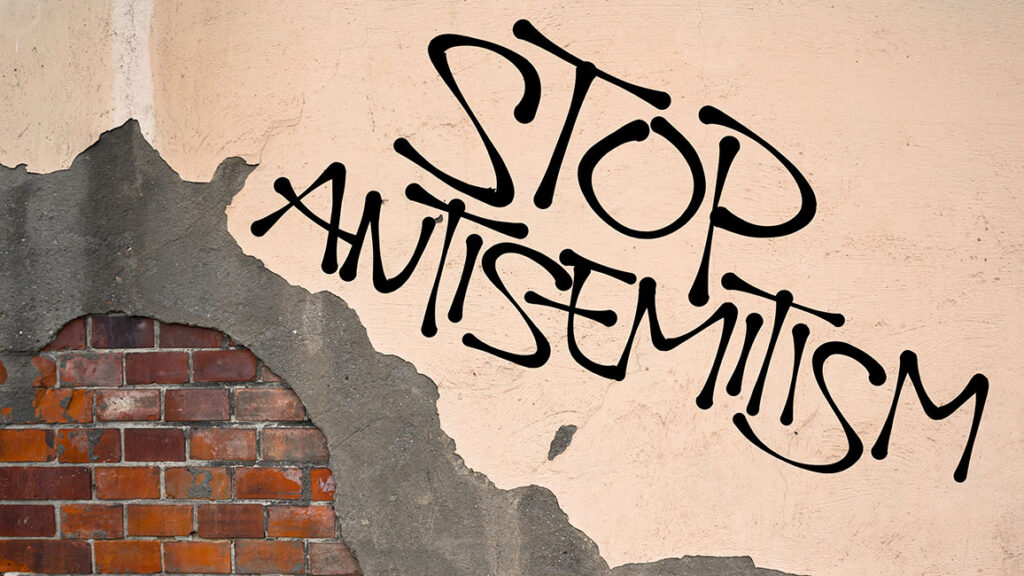
La Fondazione CDEC, in collaborazione con il Centre for Research on Extremism (C-REX) dell’Università di Oslo e il Diversity Studies Centre Oslo (DISCO) dell’Oslo Metropolitan University organizza un workshop di settore sull’antisemitismo europeo moderno a sinistra e a destra con esperti internazionali.
Il workshop si terrà il 31 maggio presso la Fondazione CDEC.
Sebbene oggi vi sia ampio consenso sul fatto che l’antisemitismo sia un fenomeno radicato nella società che deve essere combattuto, l’argomento rimane controverso e politicizzato. L’antisemitismo esiste in tutto lo spettro politico, dall’estrema sinistra all’estrema destra, e viene impiegato sia utilizzando stereotipi antisemiti radicati, sia moderni e di natura cospirazionista.
Pur avendo perso legittimità nella società tradizionale dopo la Shoah, l’antisemitismo non è mai scomparso, dimostrandosi una piaga resistente, riemergendo in tempi diversi e messo in atto da diversi attori (attivisti di estrema destra/sinistra, politici, ONG, media, ecc.) per realizzare obiettivi politico o ideologici, sotto forma di antisionismo o di pensiero complottista. Con l’ascesa dei social media dagli anni 2010, i discorsi antisemiti hanno trovato nuove piattaforme e pubblico. Il conflitto ricorrente tra Israele e Palestina innesca sempre nuovi round di violenze e molestie antisemite, nonché incitamenti all’odio online. Gran parte di questo viene da una prospettiva di estrema sinistra, filo-palestinese o islamista. Allo stesso tempo, l’antisemitismo di estrema destra continua a crescere a volte seguito da attacchi terroristici.
L’obiettivo di questo seminario è andare oltre una visione binaria, sinistra e destra, per facilitare l’esplorazione accademica delle somiglianze e delle differenze tra l’antisemitismo nell’estrema sinistra e nell’estrema destra. Studiosi di diversi paesi si riuniranno per discutere e condividere le loro ricerche sull’antisemitismo, scambiare approcci metodologici e per discutere come facilitare lo scambio e il confronto tra diversi contesti nazionali e diversi tipi di dati.
RELATORI:
Jeffrey Herf (University of Maryland – USA);
Efrat Aviv (Bar-Ilan University – Israel);
David Seymour (University of London – UK);
Johannes Due Enstad (Institute for Social Research – Norway);
Zuzanna Rosłońska (Center for Research on Extremism – C-REX, University of Oslo – Norway);
Torkel Brekke (Center for Research on Extremism – C-REX, University of Oslo; Diversity Studies Centre Oslo – DISCO, Oslo Metropolitan University – Norway);
Memphis Krickeberg (École des hautes études en sciences sociales – EHESS – France);
Stefano Gatti (Osservatorio Antisemitismo – CDEC Foundation – Italy); Murilo Cambruzzi (Osservatorio Antisemitismo – CDEC Foundation – Italy).
The workshop “Modern European antisemitism on the left and on the right”, jointly organized by CDEC Foundation, University of Oslo’s Centre for Research on Extremism (C-REX) and Oslo Metropolitan University’s Diversity Studies Centre Oslo (DISCO), will take place on May 31st, 2022, at CDEC, in Milan, Italy.
While there is today a broad consensus that antisemitism is an entrenched societal ill that must be combated, the topic is nevertheless controversial and politicized. Antisemitism exists across the political spectrum, from the far-left to the far-right, and it is employed both utilizing deep-rooted antisemitic stereotypes, and modernized/conspirational ones.
Whilst losing its societal acceptance and legitimacy in mainstream society after the Holocaust, antisemitism never went away, proving to be a resistant plague, re-emerging at different times and employed by different actors (far-right/left activists, politicians, NGOs, media, etc.) to fulfil political or ideological gains, be it in form of anti-Zionism or conspiracy thinking (Soros, Great Replacement, etc.). With the rise of social media from the 2010s, antisemitic discourses have found new platforms and audience. The recurring conflict between Israel and the Palestine triggers ever new rounds of antisemitic violence and harassment as well as online hate speech. Much of this comes from a far-left, pro-Palestinian, or Islamist perspective. At the same time, far-right antisemitism continues to raise its head, sometimes followed by terrorist attacks.
The goal of this workshop is to move beyond a binary view, left and right, to facilitate scholarly exploration of the similarities and differences between antisemitism on the far left and the far right. Scholars from several countries will come together to discuss and share their research on antisemitism; exchange methodological approaches; and to discuss how to facilitate meaningful exchange and comparison across different national contexts and different types of data.